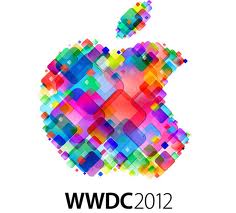So, when we last looked at this, we explored the power of positive experience, and then I kind of left you hanging. Well, guess what? I’m going to finish a thought.
IMO, the second largest factor that determines the tech a person chooses is the influences that push them in that direction. Those influences come from two sources: advertising and community.
Many of us ignore or dismiss the influence of advertising, but it totally exists. If it didn’t work, companies wouldn’t spend truckloads of money in it. But, for some reason, we pretend it doesn’t. We scoff at the cheesy ads that adorn the right-hand side of our facebook experience. Honestly, we often act like we are “above it all.” Especially us gadget head/tech freaks. We set up these walls around ourselves, like we are the last hope for the race of men, and we behave just like Lord Denethor (without the descent into madness, I hope). But those ads work on us, too. We are part of demographics that get studied, and the people doing the studying are pretty smart. For example: I used a personal install of Splunk at my last job for log aggregation. Why? No one else at my company was using it, and no one that I trusted was using it, either. But they had this shirt that said, “Taking the SH out of IT.” It was irreverent and funny, and it struck a chord. So I installed and used their product. I liked their product, too. I still do, even though I haven’t used it in ages. They knew exactly how to market to a guy like me. Their ad campaign totally worked.
The same thing happens in the consumer electronics world, too. The Motorola Droid ads are a little weird, but they are also pretty successful. The Apple “I’m a Mac” ads were snarky and elitist, and they totally worked. Sometimes the ads don’t work directly(Godaddy.com, for example), but they are successful in planting a concept or idea in your brain that creates a positive association with the product that is being offered (If I get my hosting there, I get immediate access to fast cars and pretty girls). And, truly, in the game of advertising, all publicity is good publicity.

Even though ads are powerful, they pale in comparison to the power of community. I experienced this first hand in 1998 with the explosive popularity of Linux among IT geeks. Sites like Slashdot.org and UserFriendly.org were driving this popularity globally. It was anti-establishment, tech-elitist, and intelligent. And the people that were involved were (and still are) totally cool. I wanted to hang out with these people (and I did, some). I wanted to BE these people. They were innovative and part of a circle of influence that impacted me greatly. I spent all kinds of time tweaking my MDL laptop to make it Linux-only, flying directly in the face of the corporate IT standards that I was supposed to be supporting. I went to tradeshows; hung out at the slashdot booth and watched Wrath of Khan; played pool with Linus Torvalds. All of this made me feel like I could be somebody in this community. And it cemented a connection in my head that associates Linux users with good, cool people. That connection still exists.
That’s my experience, but we all have similar experiences around the tech that we have chosen to be part of our lives. Maybe not that overt. Maybe it’s an art thing, or a style thing, or a geek thing. But it’s there. I dare you to say different and not lie at the same time. I triple-dog dare you.
David:
I agree that community is the most important thing, but that’s true of life itself, not just technology. Humans form groups; the group becomes “us” and everyone else is “them”. Heaps of Ph.D. dissertations have been written about this.
However, I personally have never been convinced about the power of advertising. Sure, I enjoy a well-done ad campaign (I have about six Splunk shirts in my t-shirt drawer). But I didn’t buy my Subaru because of Subaru ads, I bought it because I shopped around and this was the best car for me at the time. I don’t buy Chevron gasoline because of those incessant Techron ads, I buy it because it’s the closest gas station to my house. I patronize the local independent hardware store and endure Home Depot only when necessary. I always hit the mute button during commercials.



